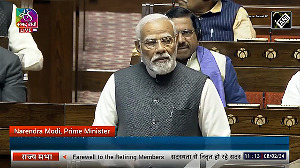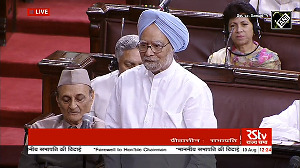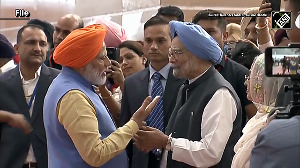With rise in demand for ayurvedic and homeopathic medicines, thanks to advertisement and marketing techniques, traditional ways of treatment systems are sought after by patients who are looking for ways for cure of various chronic and lifestyle induced ailments.
Anoop Misra, Department of Diabetes and Metabolism, Fortis Group of Hospitals, says that the demand for Ayurvedic medicines has fast increased in the last five years to more than 3,000 crore (30 billion), as they have started marketing their products in a better manner and also done scientific trials to prove the permanent cure of some diseases.
But as far as the emergency and cardiac medicines are concerned, there is no alternative to allopathy, he adds.
According to a survey by ASSOCHAM, of the 400 Indian CEOs surveyed, over 40 per cent of the CEOs are taking to ayurvedic treatments to handle stress like naturopathy, massage, acupuncture and acupressure.
Metros and towns in the coming 5-6 years would have huge ayurvedic centres for treating stress related disorders, it said.
Amrit Kalsi, Senior Medical Officer, Delhi Government, says, "The demand for homeopathic and ayurvedic medicines has increased in the last few years and to cure chronic ailments such as respiratory diseases, fevers, skin diseases, viral infections, asthma and allergic disorders, people are choosing the traditional way of treatment before allopathic."
There were 28 homoeopathic dispensaries in Delhi in 1978 and the number now has gone up to 78. The number of patients taking homeopathic medicines has increased from around 800,000 patients in 1997 to 13,62,174 patients in 2006, she adds.
"Ayurveda is certainly gaining ground. People suffering from acute or chronic ailments, either go for strong pills or Ayurveda. For a disease like cancer, after some of point of time, people lose hope and then go for options like Ayurveda or homeopathy, Misra says.
An Industry chamber report says that by 2010, domestic homeopathy market is expected to more than double and touch the Rs 26 billion (Rs 2600 crore) size. It would continue to grow at between 25-30 per cent against 13-15 per cent of pharmaceuticals industry as users of homeopathy are multiplying not only in India but also through out the world.
According to the World Health Organisation, more than one billion people use herbal medicines and in India more than 65 per cent people living in the rural areas use Ayurveda and medical plants to meet their primary health care needs.
There are over 400,000 registered homeopaths in the country currently, with approximately 13,000 more being added every year.
"The demand for Ayurvedic medicine has also gradually improved for the rising number of lifestyle diseases like stress, migraine, asthma, obesity. But in cases like surgeries or emergency operations, there is no alternative," says Misra.
"Government spends only three per cent of the total health budget on all alternative system of medical therapies including Ayurveda. Even if half of the share spent on mainstream treatment, is being given to Ayurveda, then with research and scientific trials it can complement allopathic treatment in equal manner", says social activist Swami Agnivesh.
Private hospitals have become very expensive and with the news of duplicate medicines and their side effects, Ayurveda is a safer option, he adds.






 © 2024 Rediff.com -
© 2024 Rediff.com -